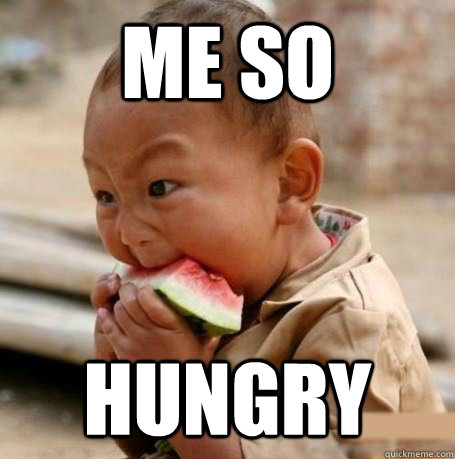Should I eat in the before going to sleep if I
want to lose weight?
Late night
cravings and hunger, everyone has it once in a while and most people dislikes
it since good eating habits carried out through the entire day easily can be
ruined by excessive late night snacking. Eating just before going to sleep can
have detrimental effects on your weight loss plan, especially considering the
kinds of food that we tend to eat just before bedtime, high in fats and carbs
and foremost high in calories which when consumed excessively is the primary
reason for weight gain.
The general
understanding among people is that eating late at night is bad since your
metabolism is slower during night time and extra food consumption during this
time will be stored as fat. This is somewhat true. The energy expenditure has
been showed to decreases with as much as 35% already during the first half of 8 hours
of sleep and remain lowered, with the decrease in fat oxidation being the main contributor for the
decline in metabolism[1]. This decrease in fat
metabolism has been suggested to last for as long as 24 hours if consuming a
nigh time snack about 200 calories consisting of a protein: fat: carbohydrate
ratio of 5:50:45 at 11 pm every day for two weeks[2], while consumption of late
night snack on a single occasion showed no effect on fat metabolism[3]. Additionally, research
has shown a correlation between energy intake in the evening and total daily
energy intake where the population consuming majority of their food in form of
fat, carbohydrates or total amount of calories in the evening reported lower
satiety and more calories consumed throughout the day [4]. This results in a greater
total calorie consumption and increased risk for weight gain.
However, recent
studies suggests that eating in the evening might not necessarily be bad if you
control for total amount of calories consumed. By making sure to eat smaller,
nutrient-dense meals instead of large mixed meals the night time snack could
potentially be beneficial. Eating a small meal consisting of ~150 calories,
30-40 grams of either carbohydrates or protein around 30 minutes before going
to bed can actually increase morning metabolism and satiety in both active [5] and sedentary obese
individuals[6].
Energy requirements
varies depending on multiple different variables, one is related to “the
thermogenic effect of food”. This is the energy required to digest the food
that one consumes. There are a lot of data indicating that proteins (both whey
and casein) have greater thermogenic effect compared to carbohydrates [7] (ARCIERO). This is due to
the fact that protein takes longer for the body to break down and digest
compared to carbohydrates. This means that protein, especially in the slow
digested form of casein, consumption causes a greater increase in metabolism
and energy requirement and has therefore been suggested as preferred
macronutrient for late night snacking. However, some studies comparing the
results following consumption of carbohydrates, whey protein or casein protein 30
minutes before bedtime showed similar improvements in insulin and morning metabolism
and satiety (KINSEY).

So to summarize it: most research that associates late night snacking with negative consequences have used fatty snacks high in total amount of calories. Replacing these kind of foods for proteins and carbohydrate (about 40g, 150-200 calories) will ensure guilt free late night snacking that potentially can help you in the weight loss process due to increase night time metabolism.
Example of foods that would be good as night time snack are presented in the table below.
Fat
|
Carbs
|
Protein
|
Calories
|
|
1 cup 0% Fage
Plain Greek yoghurt with ½ cup raspberries
|
0
|
17
|
24
|
166
|
½ cup low fat cottage cheese with
1/3 cup of low sugar granola
|
5
|
19
|
16
|
181
|
Special K Chocolate Peanut Butter Protein bar
|
6
|
25
|
10
|
170
|
Muscle Milk, ready to drink, protein shake
|
8
|
8
|
16
|
160
|
¼ cup Hummus with 1 cup Carrot sticks
|
6.3
|
21
|
6
|
156
|
[1] Katayose Y, Tasaki M, Ogata H, et al. Metabolic rate and fuel
utilization during sleep assessed by whole-body indirect calorimetry.
Metabolism 58, 920–926, 2009.
[2] Hibi M, Masumoto A, Naito Y, et al. Nighttime snacking reduces
whole body fat oxidation and increases LDL cholesterol in healthy young women. Am J Physiol Regul Integr Comp Physiol
304, 94–101, 2012.
[3] Whitehead JM, McNeill G & Smith JS. The effect of protein
intake on 24-h energy expenditure during energy restriction. Int J Obes Relat Metab Disord 20,
727–732,1996.
[4] Castro JM. The time of day and the proportions of macronutrients eaten
are related to total daily food intake. Brit
J Nutr 98, 1077-1083, 2007.
[5] Madzima TA, Panton LB,
Fretti SK, Kinsey AW, Ormsbee MJ. Night-time consumption of protein or
carbohydrate results in increased morning resting energy expenditure in active
college-aged men. Brit J Nutr 111:
71-77, 2014.
[6] Kinsey AW, Eddy WR, Madzima TA, Panton LB, Arciero PJ, Kim JS, and Ormsbee MJ.Influence of night-time protein and carbohydrate intake on appetitie and cardiometabolic risk in sedentary overweight and obese women. Brit J Nutr 1-8, 2014.
[7] Arciero PJ, Ormsbee MJ, Gentile CL, Nindl BC, Brestoff JR, and Ruby M.
Increased protein intake and meal frequency reduces abdominal fat during energy
balance and energy deficit. Brit J Nutr
21, 1357–1366, 2013.

Inga kommentarer:
Skicka en kommentar